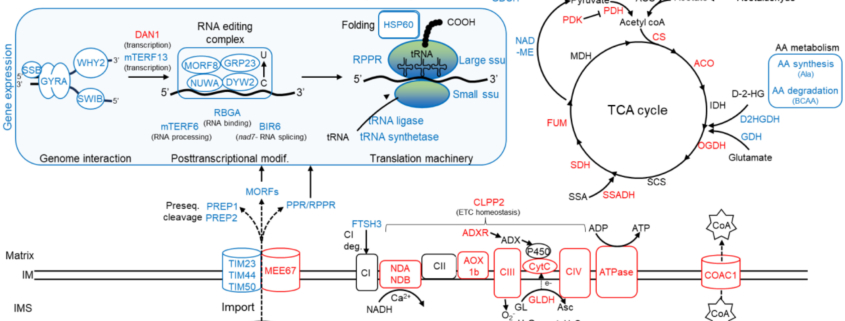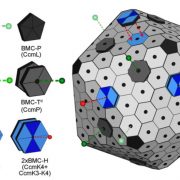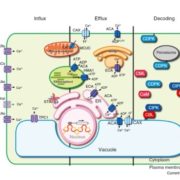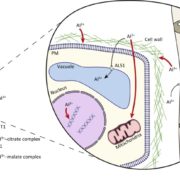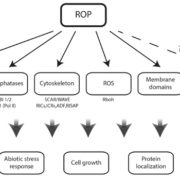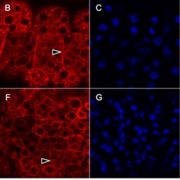High-energy requiring pollen grains have specialized mitochondria
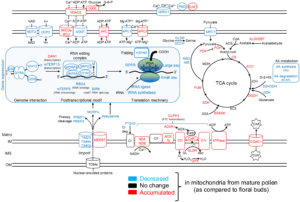 Imagine you’re on a quest to deliver a package, racing against the competition. How do you prepare? Pollen grains and the pollen tubes that they form are essentially package-delivery systems. Their purpose is to deliver genetic information (sperm cell nuclei) to the ovule. Once the task is completed, the pollen cell itself becomes obsolete. A new study by Boussardon et al. investigated the proteome of mature pollen grains which they isolated using the IMTACT protocol: Isolation of Mitochondria Tagged in specific Cell-Type. The authors showed that pollen grain mitochondria switch into a focused energy-generating program, with proteins involved in energy production (TCA cycle and electron transport chain) highly enriched, not unlike a runner carbo-loading before a race. At the same time, proteins involved in transcription and translation are strongly depleted, and the mitochondrial genome itself is actively degraded during maturation; in essence the mitochondria terminally differentiate and channel their resources into their delivery task. This observation is fascinating in light of the fact that the progeny of sexual reproduction inherit their mitochondria solely from the egg-donating parent, and not the sperm-donating parent, no pollen grain mitochondria need to be viable for transfer into the zygote. (Summary by Mary Williams @PlantTeaching.bsky.social ) Curr. Biol. 10.1016/j.cub.2024.12.037
Imagine you’re on a quest to deliver a package, racing against the competition. How do you prepare? Pollen grains and the pollen tubes that they form are essentially package-delivery systems. Their purpose is to deliver genetic information (sperm cell nuclei) to the ovule. Once the task is completed, the pollen cell itself becomes obsolete. A new study by Boussardon et al. investigated the proteome of mature pollen grains which they isolated using the IMTACT protocol: Isolation of Mitochondria Tagged in specific Cell-Type. The authors showed that pollen grain mitochondria switch into a focused energy-generating program, with proteins involved in energy production (TCA cycle and electron transport chain) highly enriched, not unlike a runner carbo-loading before a race. At the same time, proteins involved in transcription and translation are strongly depleted, and the mitochondrial genome itself is actively degraded during maturation; in essence the mitochondria terminally differentiate and channel their resources into their delivery task. This observation is fascinating in light of the fact that the progeny of sexual reproduction inherit their mitochondria solely from the egg-donating parent, and not the sperm-donating parent, no pollen grain mitochondria need to be viable for transfer into the zygote. (Summary by Mary Williams @PlantTeaching.bsky.social ) Curr. Biol. 10.1016/j.cub.2024.12.037


